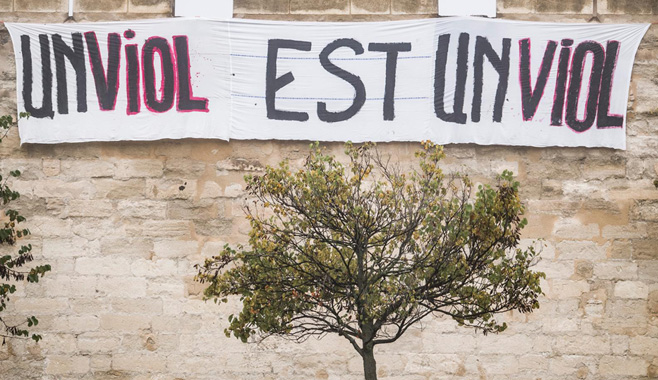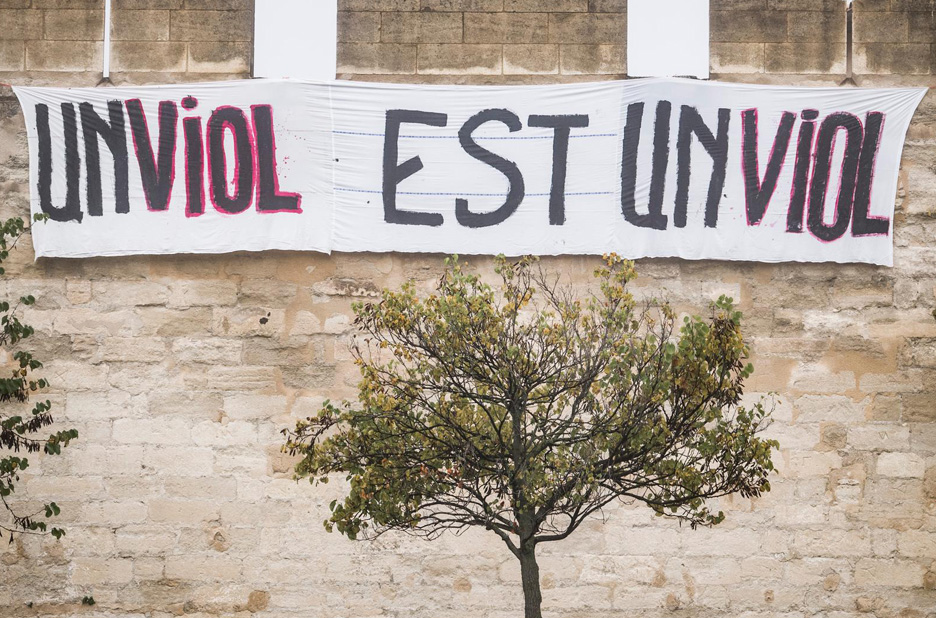Book
Vivre avec les hommes
Manon Garcia
5/5
On the Pelicot trial
In this wide-ranging essay entitled ‘How to live with men: Reflections on the Pelicot trial’ not yet translated into English, the philosopher Manon Garcia analyses various aspects of the Pelicot case and the many insights she gained by attending the trial in Avignon in the autumn of 2024. It is a fascinating read not only because of Garcia’s acute intelligence and perspicuity and direct first-person narrative approach, but also because her thinking is cast wide over the many societal implications of the events. This landmark trial concentrates so many issues that have no easy answers and that it is still essential to try to contextualise in the hope of addressing widespread sexual violence in our society.


What alarms Garcia the most is that these criminals convicted of rape show no sign of remorse or indeed not even an ounce of ability to reflect on the harm they have done. As they are 50 ordinary average men, what does this mean for the relationship between women and men in general? This is the main question that the author focuses on as she tries to approach a possible answer from many directions albeit knowing that a definitive answer is impossible to give.
These men cannot be categorised as monsters as that would suggest that they diverge from the norm. And as there is 50 of them, out of 72 culprits captured on video, and as the percentage of women who are raped annually is so high, they cannot be thought of as monsters, certainly not in the sense that they are unusual, claims Garcia, only in the sense that they are morally reprehensible. They are just average next-door men whom we all encounter daily in our lives. How indeed can we live with the knowledge that this behaviour is not unusual?
By allowing the trial to be open to the public Gisèle Pelicot, the victim of this staggering crime, permitted all the details of her devastating abuse, all the more shocking for its scale, to be known with the intention of making ‘shame change sides’. We would not know much about this case were it not for this extraordinary decision. Her astonishing bravery to subject herself to reliving her abuse in court for the benefit of society has rightly earned her great respect and admiration of the public in France and worldwide.

Her exemplary behaviour during the trial ensured that she was perceived as a ‘good victim’, but even as such she was still appallingly treated by some defence lawyers who allowed themselves to voice abhorrent misogynous arguments in court. When even a ‘good victim’ is treated this way, what hope is there for other victims, less respectable, less white, less resilient? Also what hope is there for the perpetrators and their families not to feel that the whole trial is an injustice if there is no consistent condemnation at least in the courts of law.
Although the trial was public, in reality a very small number of people were able to be present in person in the small courtroom. There was not enough space for everyone and many were turned away or at best placed in adjacent rooms with video screens which meant that they missed crucial details, for instance how Gisèle’s husband, the rapist Dominique Pelicot, dominated the courtroom. Equally those inside the courtroom, judges and journalists, didn’t see or hear the reactions of the public. Consequently this trial which was conducted for the public was in fact barely accessible.
As in every story of abuse, there are many other forgotten victims. For instance, unlike her mother, Gisèle Pelicot’s daughter Caroline has not obtained any clarity regarding whether she was abused by her father despite some circumstantial evidence. The author analyses the tragic contrast between mother and daughter, mother who has paid a high price for perhaps some closure, and daughter who may never get any. The calm and collected Gisèle who is applauded and supported daily by the public, versus the angry and devastated Caroline who is isolated. Generational differences are also at play in the expectations of the two women. There are suggestions and rumours in the family of suspected incest by various family members, but rightly or wrongly, this was outside of the scope of the proceedings. Gisèle Pelicot’s sons although supporting their mother are shown using belittling patriarchal language. The whole family is indeed on trial and this reveals many unsettling details.

The rapist who has organised the mass-abuse, Gisèle’s husband Dominique Pelicot, continued to orchestrate the proceedings in court, ensuring his recruits are held responsible and convicted. His perversion managed to taint any positive feelings of justice being served.
We ultimately want to know why these men committed these atrocious acts. The answer is always very simple: control over women, enforcing their full submission. The author contributes many interesting thoughts on the analysis of consent and submission, two topics that as a feminist philosopher she is particularly interested in. She believes that the consent is so widely misunderstood in society that changing the legal definition of rape in French Law to include it would make no difference to the prosecution of rape. And by the same token, this undoubtedly successful and important trial cannot by itself change society. We cannot expect from the justice system more than what it is there to do, which is to prosecute and convict crimes.
Perhaps one of the reasons this extremely well written and important essay will never be translated into English is Garcia’s encounter at the end of the proceedings with the Daily Mail journalist who covers the trial. When she asks him how the trial has affected him, he says: ‘It’s just a job you know, this is nothing. I went to Israel, I went to Ukraine, I’ve seen way worse.’ I cannot stress how shocking these words are after 200 pages of following this grisly trial mediated by Garcia and effectively as a reader protected by Garcia from its full direct impact. She simply concludes that he has no more introspective capacity than the accused men.
The notion that wanting to stop sexual violence makes you a radical feminist is so preposterously and tragically misguided that it is impossible to articulate a counter argument at the same low and manipulative level of thinking. How about treating women as human beings? It seems that today in the 21st century this is still a revolutionary idea.